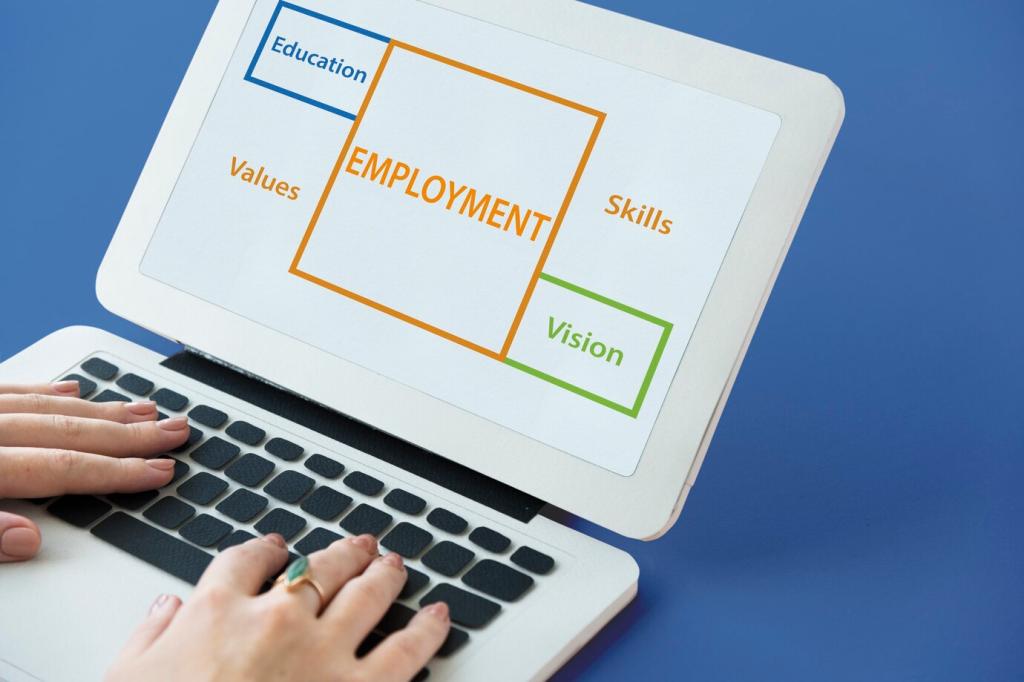Digital Literacy: Tools and Techniques for Improvement
Chosen theme: Digital Literacy: Tools and Techniques for Improvement. Welcome to a friendly space where we turn online overwhelm into confident, practical skill. Explore stories, tools, and habits that make your digital life safer, faster, and more joyful.
What Digital Literacy Means Right Now
From Basic Access to Thoughtful Participation
Digital literacy begins with using devices and apps, yet it truly shines when you can judge credibility, adapt to updates, collaborate, and communicate with empathy. Think beyond clicking—toward understanding, intention, and responsibility.
Everyday Decisions that Shape Confidence
Booking a vaccine, disputing a bill, or verifying a viral claim are small acts that test your skills. Each click becomes a choice to slow down, question, and confirm. Practice turns hesitation into calm, repeatable steps.
A Short Story: Maya and the Suspicious Invoice
Maya once panicked over a fake invoice email. She paused, checked the sender domain, hovered over links, and googled key phrases. That tiny investigation saved money—and sparked a habit of protective curiosity she now shares with friends.
Core Skills and Mindsets for Improvement
Spot manipulative headlines, reverse-image search suspicious photos, and triangulate facts across multiple reputable sources. Ask who benefits, what’s omitted, and whether evidence is primary or hearsay. Share your favorite verification trick with our community today.
Security Essentials You’ll Actually Use
Adopt a password manager, enable multi-factor authentication, and set calendar reminders for security reviews. These basics prevent the majority of account issues. If you started today, which tool would bring the biggest peace-of-mind boost?
Collaboration and Cloud Confidence
Learn real-time co-editing, version history, and permissions. Create shared folders with clear naming conventions. Backup important files automatically. Invite a friend to a mock project and practice resolving edits without friction or confusion.
Personal Knowledge Management for Clarity
Use a note system with tags, backlinks, or outlines to capture insights and sources. Summarize articles in your own words. Build a mini knowledge library on topics you care about—and share one helpful note with our readers.
Safety, Privacy, and Digital Wellbeing
Catch Phishing Before It Catches You
Look for mismatched domains, urgency traps, and unusual attachment types. Verify through separate channels before acting. Report suspicious messages to help others. Comment with a red flag you recently noticed so newcomers can learn faster.
Privacy Settings that Actually Matter
Audit app permissions, limit public profile details, and separate email aliases for shopping and banking. Turn off location history where unnecessary. Schedule quarterly checkups and share your top setting to review in our next community roundup.
Wellbeing: Boundaries for a Better Brain
Batch notifications, set do-not-disturb windows, and curate a calmer home screen. Replace doomscrolling with purposeful check-ins. Five mindful minutes a day can reset your digital mood. Tell us your favorite boundary and why it works for you.
Practice Routines that Stick
Choose one micro-skill—like filtering search results—and practice for a focused twenty-five minutes. Record what worked, what failed, and what to try next. Return tomorrow. Share your micro-skill target so we can cheer you on.
Practice Routines that Stick
Capture concise notes, tag them, and review on a schedule. Summaries cement concepts faster than highlights. Add a weekly reflection: what confused you and how you resolved it. Post a quote from your latest entry to inspire others.
Practice Routines that Stick
Form a small group to swap tips, compare sources, and run quick drills. Rotate hosts, set achievable challenges, and celebrate experiments. Invite a friend to join our newsletter challenges and share your next group goal with us.
Ethical and Inclusive Participation Online
Write clear headings, add alt text, and maintain readable contrast. Use captions for videos and concise link labels. Ask for feedback from users with varied needs. Tell us one accessibility improvement you’ll make this week.

